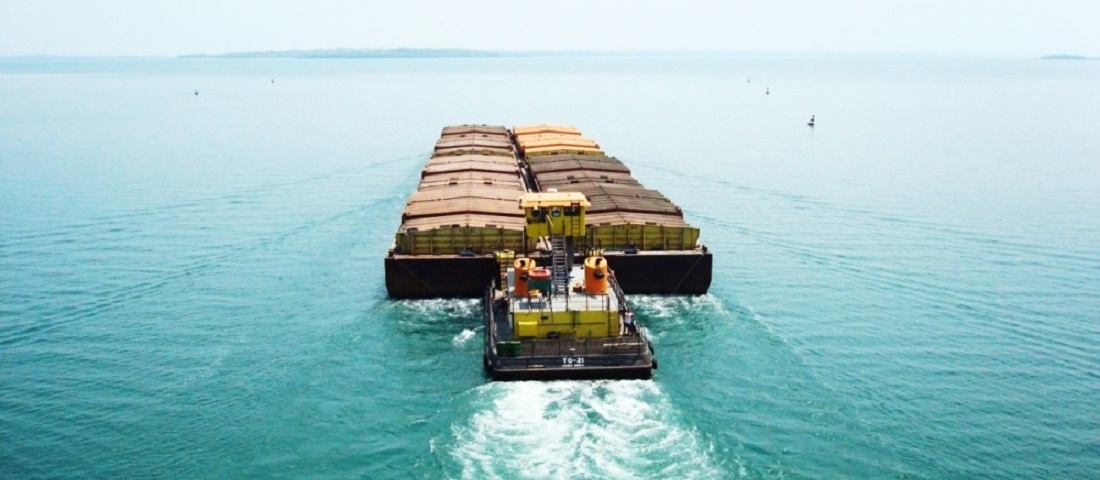
Antaq studies interstate concession of Tietê and Paraná Rivers
Jul, 19, 2023 Posted by Gabriel MalheirosWeek 202330
Encouraging the use of inland waterways in Brazil to balance the transportation matrix, reduce costs and achieve environmental gains is a priority for the Brazilian National Waterway Agency (Antaq), which is drafting a general plan for the economic treatment of these transport routes to the Ministry of Ports and Airports by the end of the month. In an exclusive interview, Antaq’s Director-General, Eduardo Nery, spoke about the importance of inland waterway routes and that the agency is studying the interstate concession of the Tietê and Paraná rivers. He sees the Tietê-Paraná Inland Waterway as a potential outlet for the flow of grains and iron ore to the Port of Santos.
In a recent hearing in the Chamber of Deputies, you said that inland waterway routes are essential for the balance of the country’s transportation matrix. What is the current state of BR dos Rios, which aims to promote the sector?
BR dos Rios is an initiative by the Ministry of Ports and Airports, which formulates public policies for the development of water infrastructure in partnership with Antaq. In this context of upcoming measures aimed at encouraging inland navigation, BR dos Rios may undergo regulatory changes that promote integrated planning. But it is up to the ministry to decide to establish a new regulatory framework. Other measures, such as a decree, for example, are still been considered. Other relevant points to BR dos Rios are the modernization of the inland navigation fleet, tax relief to promote new companies, and a new policy to regulate the use of water resources.
Is the implementation of inland waterways in the Southeast Region feasible? How can it benefit the Port of Santos?
We recently created the Special Secretariat for Inland Waterways Studies and Projects to foster inland navigation across Brazil. But it is worth mentioning that we are working on a greenfield site. In the Southeast region, the Tietê-Paraná Inland Waterway would be our main project. This route is already operated by the State of São Paulo and will seriously benefit from the surface leveling around Nova Avanhandava, which will be funded through the privatization of Eletrobras. These developments should change positively the logistics scenario in São Paulo.
Antaq is also studying the possibility of an interstate concession integrating the Tietê and Paraná rivers. This inland waterway route will allow the inflow of grains and iron ore to the Port of Santos by integrating the region of São Simão to Pederneiras, which is already connected with the “Paulista” Rail Network, which goes to the Port of Santos.
And in the rest of Brazil?
We cannot forget the São Francisco River. With high water levels in recent years, navigation is already possible. There are some environmental challenges, but they are already being addressed by our Special Secretariat. We’d like to resume our journey from Petrolina to Pirapora.
The study “Impacts and Risks of Climate Change on Public Ports” pointed out that Santos is one of the ports that are most likely to suffer from climate change. How will Antaq help Santos and other ports to mitigate these risks?
This study aimed to understand how our ports are planning to mitigate the impacts of climate change. We identified the ports that are most exposed to these hazards and then conducted specific studies to assess their vulnerability. In Santos, for example, we conducted in-depth analyses of the impacts on operations. Based on these studies, we developed customized measures to mitigate the risks of climate change for Santos. It is now up to the authority to evaluate these suggestions and implement the most appropriate measures.
What are the next steps?
We will first use incentives as a way to regulate by including a new standard within our Environmental Performance Index (EPI). This will allow us to bring an initial assessment of how ports are implementing these measures. In the second phase, we plan to conduct guided and periodic inspections. The goal is to determine where each port is and whether or not a particular situation has improved or worsened. Antaq has coercive powers in critical situations to ensure that ports implement certain measures.
Source: A Tribuna
To read the original piece, click on: https://www.atribuna.com.br/noticias/portomar/antaq-estuda-concessao-interestadual-da-hidrovia-tiete-parana-diz-diretor-geral
-
Ports and Terminals
Oct, 21, 2021
0
RS ports remain profitable in September
-
Trade Regulations
Jul, 27, 2020
0
CNA study shows Brazil´s agribusiness exports to benefit greatly from free trade agreement between Mercosur and Canada
-
Grains
Feb, 14, 2022
0
Agribusiness exports reached a US$ 8.8 billion record in January
-
Ports and Terminals
Feb, 04, 2022
0
Liquid bulk transportation and cabotage shipping stood out at Suape in 2021



